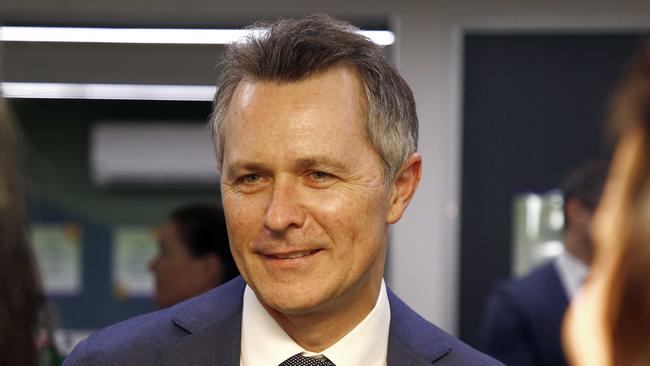‘Debt trap’ open for failing university students
Universities’ obligations to identify and support struggling students have been ‘watered down’ and their reporting requirements relaxed under Albanese government reforms.

Universities’ obligations to identify and support struggling students have been “watered down” and their reporting requirements relaxed under the Albanese government’s higher education reforms winding back controversial rules that cancel failing students’ funding.
Education Minister Jason Clare has pushed back the deadline for the Support for Students Policy Guidelines to come into effect from New Year’s Day to April 1, after he quietly released the final version of the policy with significant changes earlier this month.
The guidelines were introduced as part of the government’s response to the University Accord, which retracted a requirement implemented under the Morrison government to withdraw federal funding from students who fail 50 per cent of their subjects.
The draft version of the guidelines was criticised within the sector for being too onerous, difficult to implement and curtailing the freedom of academics to exercise their judgment, leaving universities scrambling to meet the requirements or risk facing fines of $18,700.
Opposition education spokeswoman Sarah Henderson has accused the government of removing requirements for universities to actively identify students at risk of failing their units from the draft guidelines, setting a “debt trap” for vulnerable students.
“Under the draft guidelines, higher education providers were required to implement a policy which ‘must include’ processes to identify and support students at risk of failing their studies including those in need of targeted literacy and numeracy support,” Senator Henderson said.
“The final version has been dramatically watered down, with universities now only required to publish on a website ‘information describing’ their current set of student support policies.”
The final guidelines have also omitted a provision requiring universities to report information on “academic outcomes for all students”, while introducing a March 1, 2025, deadline for the first report.
“Under the scheme, universities are no longer required to report on the academic outcomes of students requiring support including HECS loans accrued for failed units of study,” Senator Henderson said.
“There are no minimum standards of support that universities must provide including for those who are victims of sexual violence or suffer mental health challenges.”

The 50 per cent pass rule was met with fierce opposition within the sector for being punitive and targeting disadvantaged students, with the Universities Accord interim report recommending the government axe the requirement.
A bill was passed in October implementing several recommendations from the report including the abolishment of the 50 per cent pass rule, strengthening accountability for higher education providers and introducing a requirement on institutions to implement a support for students policy.
A spokeswoman for Mr Clare said the government should be “helping students to succeed, not forcing them to quit”, adding that legislation required higher education providers to have support policy from January 1, with further detail to be included from April 1.
“These policies will detail the support all universities will provide to their students to assist them to successfully complete their studies,” she said.
ANU higher education expert Andrew Norton said the draft guidelines signified a “huge overreach” backing the changes in the final version, including dropping provisions directing academics to offer “adjustment arrangements” to students facing issues.
“My view was that it should be a matter of academic judgment, otherwise it’s kind of a slackers paradise to invent some excuse and an academic is forced to give you a long extension,” he said.
Outgoing Universities Australia chief executive Catriona Jackson said the sector was relieved the “punitive and unfair” 50 per cent pass rule would be gone with the new year, while conceding she had held concerns that providers had not been given enough time for the January 1 deadline. She also rejected the introduction of financial penalties for providers that don’t comply.

“We think that they’re not appropriate in this circumstance, and that there should be a conversation between government and universities rather than having a punitive element,” she said.
Queensland University of Technology vice-chancellor Margaret Sheil welcomed the end of the 50 per cent rule describing it as a “blunt tool”, adding that her institution would have the guidelines ready by Monday.
University of Adelaide deputy vice-chancellor and vice-president academic Jennie Shaw said the university’s policy would be ready by Monday, and it would continue to “proactively seek to identify students who are potentially at risk”.
The University of Queensland, Western Sydney University, the University of Sydney and Australian National University confirmed they were in the process of finalising or had completed their support for the student policy.




To join the conversation, please log in. Don't have an account? Register
Join the conversation, you are commenting as Logout